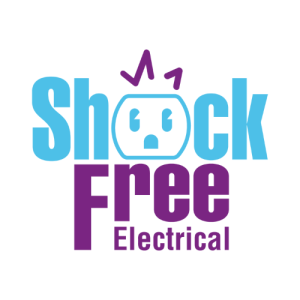In an era defined by the urgent need for sustainability, the role of electrical professionals has taken on newfound significance. With the world pivoting towards greener practices, electricians are at the forefront of this transition, embracing green technology to revolutionize the way we power our homes, businesses, and communities. This article delves into the realm of eco-conscious electrical work, exploring how electrical experts are integrating renewable energy, implementing energy-efficient solutions, and driving forward the green revolution.
1. Renewable Energy Integration:
They are increasingly involved in the installation and maintenance of renewable energy systems such as solar panels, wind turbines, and hydroelectric generators. These technologies harness the power of nature to generate electricity without relying on fossil fuels, thereby reducing carbon emissions and lessening our dependence on non-renewable resources. They play a crucial role in ensuring these systems are safely and effectively integrated into existing infrastructure, allowing individuals and businesses to embrace sustainable energy alternatives.
2. Energy-Efficient Lighting Solutions:
One of the most significant contributions they make to green technology is through the implementation of energy-efficient lighting solutions. Traditional incandescent bulbs are being phased out in favor of LED (Light Emitting Diode) lights, which consume significantly less energy while providing equal or superior illumination. Electrical experts help consumers and businesses transition to LED lighting by retrofitting existing fixtures and installing new systems, resulting in reduced energy consumption and lower utility bills.
3. Smart Home Automation:
These experts are at the forefront of the smart home revolution, integrating advanced automation technologies to optimize energy usage and enhance convenience. From programmable thermostats that regulate heating and cooling based on occupancy patterns to smart lighting systems that adjust brightness according to natural light levels, professionals are instrumental in transforming ordinary homes into energy-efficient and intelligent living spaces.
4. Energy Management Systems:
In commercial and industrial settings, they are deploying sophisticated energy management systems to monitor, analyze, and optimize electricity usage. These systems leverage advanced sensors, meters, and software platforms to identify inefficiencies, track energy consumption patterns, and implement strategies for reducing waste. By partnering with them to implement energy management solutions, businesses can significantly reduce their carbon footprint and operating costs.
5. Electric Vehicle Infrastructure:
As electric vehicles (EVs) gain popularity, they are playing a pivotal role in developing the infrastructure necessary to support widespread adoption. This includes the installation of EV charging stations in residential garages, commercial parking lots, and public spaces, as well as upgrading electrical systems to accommodate the increased demand for power. By facilitating the transition to electric transportation, these experts are contributing to a cleaner, greener future for transportation.
6. Battery Storage Solutions:
Battery storage technology is a key component of renewable energy systems, allowing excess energy generated from sources like solar and wind to be stored for later use. Electrical experts are instrumental in installing and maintaining these battery storage solutions, ensuring seamless integration with existing electrical systems. By maximizing the efficiency of renewable energy generation and storage, they are helping to create a more reliable and sustainable energy grid.
7. Sustainable Building Practices:
In the construction industry, these experts are championing sustainable building practices by incorporating energy-efficient electrical systems and materials. This includes the use of eco-friendly wiring, energy-efficient appliances, and intelligent building controls that minimize energy waste. By collaborating with architects, engineers, and contractors, they are helping to reduce the environmental impact of construction projects and promote sustainable development.
8. Continuing Education and Training:
To stay abreast of rapid advancements in green technology, they are continuously seeking out education and training opportunities. From courses on renewable energy systems to certifications in energy management and sustainability, experts are investing in their professional development to serve their clients and communities better. By staying ahead of the curve, professionals are poised to drive further innovation in the field of green technology.
As society grapples with the urgent challenges of climate change and environmental degradation, they are stepping up to lead the charge toward a more sustainable future. Through the adoption of green technology, these professionals are transforming the way we generate, distribute, and consume electricity, paving the way for a cleaner, greener world. By embracing renewable energy, implementing energy-efficient solutions, and driving forward innovation, electricians are not only shaping the future of their profession but also making a tangible difference in the fight against climate change.
Whether you’re considering solar installation, upgrading to energy-efficient lighting, or implementing smart home automation, an eco-conscious electrical expert can help you reduce your carbon footprint and save on energy costs. Contact us at Shock Free Electrical at (709) 687-5393 to learn more about how we can help you embrace green technology and make a positive impact on the planet.






